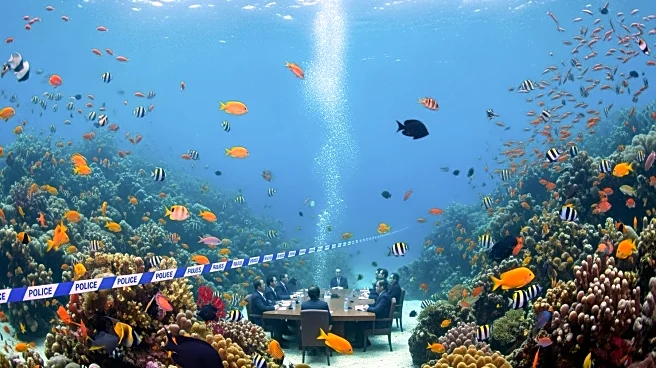What's Happening?
The Food and Agriculture Organization (FAO) and the European Union (EU) have initiated a €20 million project to improve access to aquatic foods in Africa and Latin America. The initiative, named NAVAC,
aims to provide sustainable and nutritious aquatic foods to vulnerable populations in Chad, Colombia, Guinea-Bissau, Mauritania, and South Sudan. Supported by the EU and FAO's Technical Cooperation Programme, NAVAC will focus on enhancing local aquatic value chains and driving innovation. The project aligns with FAO's goals of better production, nutrition, environment, and life, promoting a 'net-to-plate' approach.
Why It's Important?
The NAVAC initiative is crucial for addressing malnutrition and food security challenges in Africa and Latin America. Aquatic foods are rich in proteins and micronutrients, essential for combating malnutrition, particularly among children and pregnant women. By improving access to these foods, the project supports local economies and promotes sustainable development. The initiative also reflects the EU's commitment to global challenges like climate change and resilient value chains. Enhancing aquatic food systems can lead to better health outcomes and economic growth in participating regions.
What's Next?
FAO will implement NAVAC in collaboration with the Technical University of Denmark and local partners. The project will initially assess existing aquatic food value chains to identify gaps and opportunities for improvement. Based on these findings, strategies will be developed to upgrade supply chains and enhance nutrition outcomes. Innovative tools, such as biotechnologies, will be explored to ensure effective distribution of nutritious foods. The initiative is expected to strengthen local livelihoods and contribute to sustainable food systems in the targeted regions.
Beyond the Headlines
NAVAC's focus on aquatic foods highlights the potential of underutilized resources in addressing global food security. The project's integrated approach emphasizes the importance of sustainable practices and local expertise in transforming food systems. By prioritizing vulnerable populations, NAVAC aims to create equitable access to nutrition, supporting broader social and economic development goals. The initiative also underscores the role of international cooperation in tackling complex challenges, fostering resilience and sustainability in food production.









